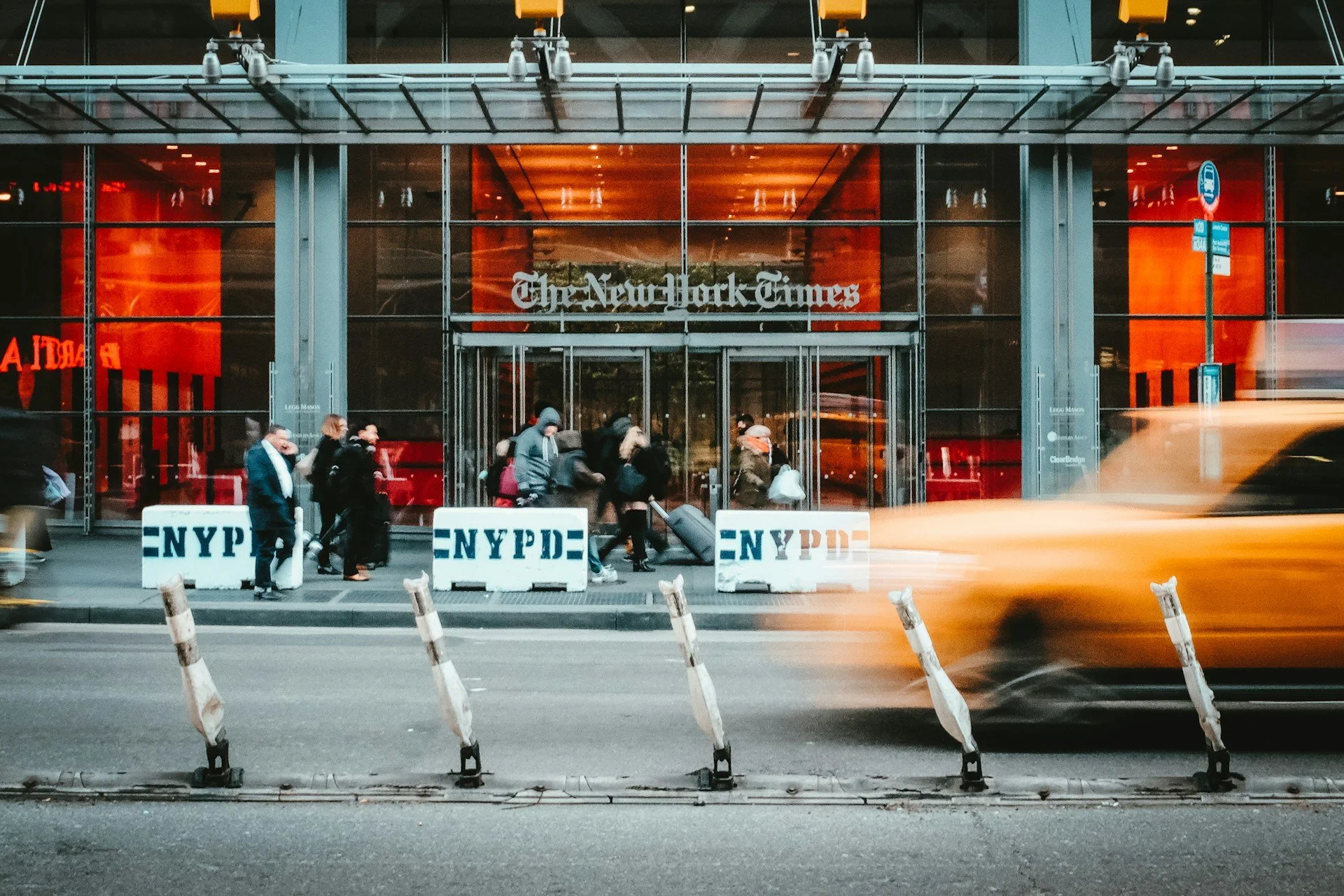
Daria Solovieva is a journalist based in Milwaukee, Wisconsin.
Previously she has reported for leading business publications from all over the world, including Mogadishu, Moscow and Dubai. Most recently, she was Salon.com’s Deputy Money Editor.
She is at work on her first book about the history of women’s money in the United States.
The blue economy is simultaneously one of the oldest and newest markets on earth.
Throughout history, great powers have used the oceans to extract natural resources, conquer new lands, and trade goods. The oceans have also played a critical role in cooling the planet, making it habitable despite the accelerating pace of global carbon emissions...
As social distancing becomes the norm and hospitals across the country are overwhelmed with coronavirus cases, a stark, anxious reality is sinking in for thousands of Americans hoping to have a family someday, as well as companies whose business models often rely on smart time management for aspiring parents.
The growth of the plant-based meat sector started to take hold a decade back. Thanks to rapidly increasing sales, even traditional meat companies—those of the animal protein world—want in on the game. But as the sector matures, many people are beginning to ask tougher questions about the long-term potential of the trend, the nutritional value of the products, and whether faux meat production can really help reduce the harm traditional meat production causes the environment.
As COVID-19 testing is poised to ramp up following the federal government’s recent measures and the rollout of a range of private initiatives, there are still more questions than answers about who will be able to access these tests, who will pay for them or any potential treatment, and how successful these measures will be in deterring the spread of the coronavirus across all parts of American society.
More than half a century ago, my grandmother Vera arrived at a university in southern Russia with a suitcase of pirozhki, the ultimate Russian comfort food of baked buns. Her parents didn’t have much to offer in terms of financial support. But they believed that a college degree was the key to a better life—for their daughter and for their family.
Key Takeaway: We enter the new decade full of promise for innovation and discoveries in healthcare, financial services and clean energy. Here are some of the top trends that impact investors should watch. 1. Financial Inclusion With big tech companies including Facebook and Twitter looking at the financial inclusion space, central banks are also waking […]
TAKEAWAY: While we may be lulled into thinking that an age of gender parity is upon us, the work is just beginning. Earlier this month, I saw something I’ve never encountered before in years of attending startup events: three out of four founders pitching their startups at the Food Future Co. demo day in New […]
There’s no shortage of media pundits this time of year gazing at their crystal balls to divine what the next decade will bring, but the reality is that nobody can predict what technology and innovation will look like at the end of the 2020s. Earlier this year, I saw Ann Rosenberg, senior vice president and […]
A growing number of startups are working on developing agriculture technology that may feed people in space while helping protect the environment. If you’re having a flashback of Matt Damon fertilizing soil and growing potatoes in his garden on Mars as he does in the 2015 film The Martian, the emerging technologies and business plans […]
When every government in the world and a kaleidoscope of private stakeholders negotiated the Sustainable Development Goals in 2015, they had no idea the impact investing industry would embrace and run with them as the go-to investment principles for social impact. “As diplomats, you never thought that it would be such a big driver for […]
Virgin Galactic, the first and still the only space tech company to go public, disclosed results for the third quarter this week.
It reported $80 million in deposits and $120 million in potential revenue, and founder Richard Branson promised investors to be profitable by 2021.
Virgin Galactic needed 15 years since its founding to get to this point and now commercial space travel may be finally in reach “within a year,” he said.
Sound Businesses: Profiles of companies and business models we are keeping an eye on. Dandelion Energy, Inc., a spin out from Alphabet’s secretive research facility X, has only been around for a couple of years. But the New York city-based startup has bold plans: it wants to make geothermal energy affordable and accessible for a […]
The “original gangster of big tech” has managed to dodge the bad headlines and congressional grilling that have ensnared its rivals by working with regulators and advocating its own solutions.
The assistant, launched by a company with ties to the Kremlin, is exploding in growth and is not encumbered by any privacy or regulatory concerns.
From a cell in a high-security prison outside Moscow, Konstantin Kozlovsky reveals more about the software he claims disrupted the 2016 election.
Blog
Welcome to the State of Abundance.
The election has exposed the need for objective, fact-based reporting that cuts through the noise of partisan rhetoric and restores public trust in journalism.
Remembering spiritual author I’m lucky to call my teacher over the last decade: her incredible life story, teachings and spiritual legacy.
Ukraine’s conflict hits close to home for me and millions of others because it’s about more than one country or region.
A sustainable ocean economy could help dig our way out of the climate crisis.
The biggest step we can take is to accept individual responsibility for climate change.
With an increasing abundance of entertainment apps, traditional television and new streaming platforms, it’s getting harder and harder to keep track of -- not to mention keep your TV-watching habits under budget.
More women are learning about cryptocurrencies and becoming better investors.
We shouldn’t blindly trust that these plant-based meat companies and their ongoing experiments will have a beneficial impact on the environment and our nutrition.
Lack of coordinated political action, failure of various agencies to share information as well as the government sector’s ability to attract and retain top cybersecurity talent are holding us back.
Given the broad scope, the ambitious humanitarian vision and the vast potential impact of his companies on entire industries, Musk’s activities should invite closer examination, consistent scrutiny and penalties from a whole bunch of government agencies.
New data shows how employment gains made by women last year have been erased by this economic downturn. Now that the pandemic has exposed systemic inequalities in the workplace, it’s time to act.
The last weeks of the presidential race and the outbreak of Covid-19 at the White House have taken over the nation’s attention, distracting us from commemorating and remembering Justice Ginsburg. And yet now is the time to remember her legacy and honor what she was able to accomplish, because her work is far from finished.
The Covid-19 healthcare crisis is taking an especially brutal toll on those battling chronic conditions and mental health issues.
What the pandemic has exposed is not only that the systems are broken, but also that we haven’t been studying them and measuring progress adequately. It doesn’t matter if more women get to participate in the economy, if they are still not able to save or otherwise make progress towards greater financial security.
A cohesive, coordinated U.S. response that involves all the government agencies and social media platforms may be elusive for a while. But the vaccine for the misinformation virus is already available: credible, fact-based journalism and accessible education, especially understanding of history.
As many will rethink their relationship with money in this changing reality, a new book by Leisa Peterson aims to chart the way forward, a departure from traditional capitalist principles of wealth accumulation for its own sake.
What’s striking about the American experience with Covid-19 is that while half the country is counting days till the miracle vaccine will allow things to go back to normal, the other half of the country has no intention of ever vaccinating themselves or is on the fence about it. And this makes our prospects for going back to normal even murkier and complicated.
In the age of the Covid-19 pandemic, this argument about capitalism and whether you can really be a “socially impactful” investor, is playing out across many industries in real life. Old structures, systems and business models are breaking down. Pick any industry, look at their numbers, and you’ll see exactly how prepared they’ve been for a global catastrophe all along.
The Trump administration’s dangerous centralization of hospital data and leaving the states to figure out testing policies on their own are still leaving many Americans to fend for themselves when it comes to accessing reliable and affordable Covid-19 tests, months into the pandemic.
What is the ‘State of Abundance’ about?
The raging pandemic and the racial justice movement are reminders that the systems of the past are not working. Or rather, they are not quite working for everyone.
This blog is about claiming the state of abundance in your life regardless of the kind of family you were born into, the color of your skin, sexual identity, education you received or the type of business publications you can afford to subscribe to.



































Vice President Kamala Harris last month announced an ambitious plan to construct 3 million new housing units over the next four years. The proposal, which she made one of the key issues of her presidential campaign, aims to address the severe housing shortage that has pushed homeownership out of reach for millions of Americans and exacerbated the generational wealth gap.